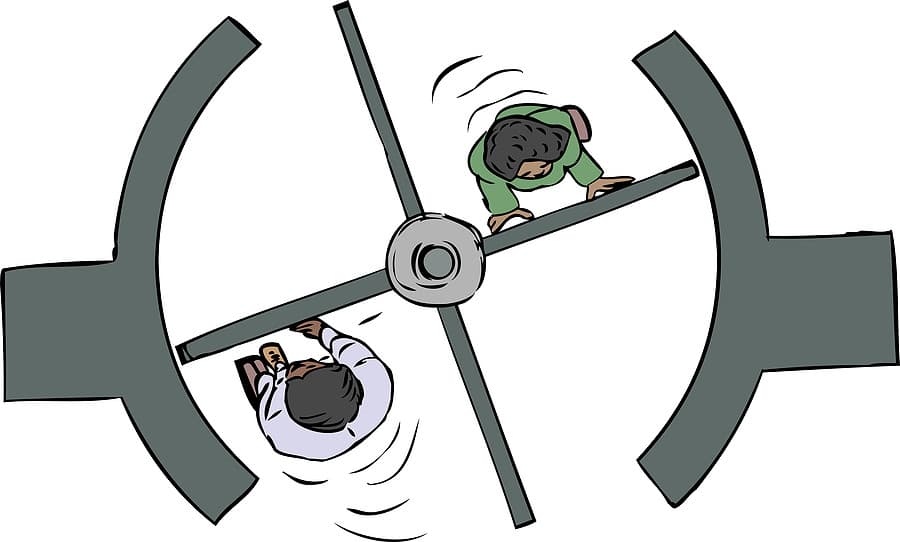In a pre-pandemic world, businesses typically valued the longevity of an employee who would stay for the long-run. Essentially, they hired for long-term value, someone who could embody their brand, develop a rapport with their clients, and repay the training they might be given tenfold.
However, with the steady rise of job-hoppers in the past few years and current mass unemployment, it’s worth pondering whether hiring managers should still expect people to have long tenures at their organizations. Could the pandemic potentially change the way we look at the short-term value of employees?
The Case for Longevity
According to 2018 research from the Bureau of Labor Statistics (BLS), employees traditionally stayed with a company for an average of 4.6 years. And sure enough, this entails multiple benefits for employers:
- Long-term hires are more likely to be loyal champions of the brand. They know the company inside out and are passionate spokespeople for products and services.
- Employers get people they can train, invest money and time into, and whose subsequent expertise generates a large financial ROI.
- There is stability in the office for colleagues, which creates a stronger team identity and workplace relationships, as well as happier and more productive employees.
- Handovers of projects are easier since companies have to do them less often. Plus, it mitigates having to build rapport from scratch with clients, who appreciate continuity.
- It minimizes a potential cascading effect, whereby one employee leaving can incite others to seek greener pastures, especially if the colleague is joining a superior company with superior pay and benefits.
- Long-term hires reduce costs associated with recruitment, including onboarding and background checks, as well as training programs and other resources.
The Job-Hopping Generation
Despite these advantages, the average tenure of a worker has been decreasing gradually for a while. In 2018, record numbers of U.S. employees quit their jobs, while the number of job postings hit an all-time high, which indicates high employee mobility. This is largely credited to the job-hopping generation of millennials.
Indeed, there is now less stigma around job-hopping as more people feel empowered to pursue new opportunities. For instance, job-switchers saw roughly 30% larger annual pay increases than those who stayed put.
HR has already had to adapt to this change by implementing initiatives to encourage employee retention — from offering perks and better healthcare and wellbeing benefits to more flexible remote-work policies.
The Aftershock — and Continuing Shock — of COVID-19
Following large-scale layoffs and companies folding, those newly unemployed are seeking immediate work, with many in a bad position financially. The BLS reported that in July, the unemployment rate was 10.2%, up from 4% in February.
As such, people are seeking new jobs, sometimes even if those jobs are not good fits. This means that employers are facing large pools of candidates. Now, some of these applicants are genuinely looking to stay for a long time. Others, however, are looking for a stop-gap to weather out the pandemic’s seismic economic disruption.
Your knee-jerk reaction may be not to hire such candidates. But is it so bad to hire capable people just because they might not stay for long?
Creating Short-Term Value
Recruiters have tended to take a negative approach to job-seekers who have had multiple short-term jobs — 43% of employers said they wouldn’t hire a job-hopper. But rather than focus on what this might take away from a company, why not focus on what short-term hires can bring to an organization?
- Longevity is not important for every role. Sometimes you just need people to do the job right away.
- This could be a great way to rejuvenate a workplace and maintain diverse perspectives. For example, in creative jobs, fresh eyes can provide fresh viewpoints.
- Short-term employees could be more productive as they’re less likely to suffer “career fatigue,” whereby the repetitive routine of the same job over a long period can wear them down mentally.
- Similarly, new employees may be more productive when they are new hires, not having fallen victim to complacency.
- Employees could be more grateful for work — translation: hard-working — than those who haven’t faced lengthy unemployment or instability.
It comes down to this: Low turnover for the sake of low turnover does not make sense. The days when you could expect people to stay at your organization even under the best circumstances are over. More importantly, it’s not retention that matters most. It’s engagement. By creating workplaces that encourage people to be their best, you’ll get the most value out of a mix of employees — both long- and short-term workers.
